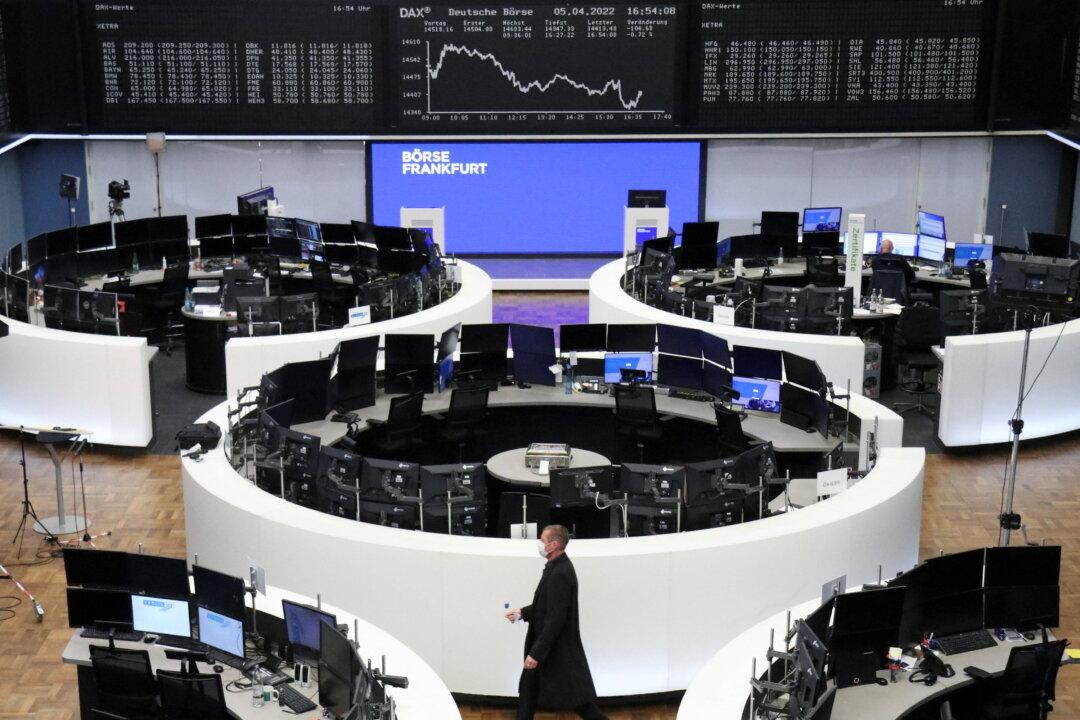Germany’s annual pace of inflation surged to its highest pace since 1981, largely on the back of a nearly 40-percent surge in energy prices.
Data released by German statistics office Destatis on April 12 shows that, in March, consumer prices rose 7.3 percent year-over-year and 2.5 percent month-over-month.





